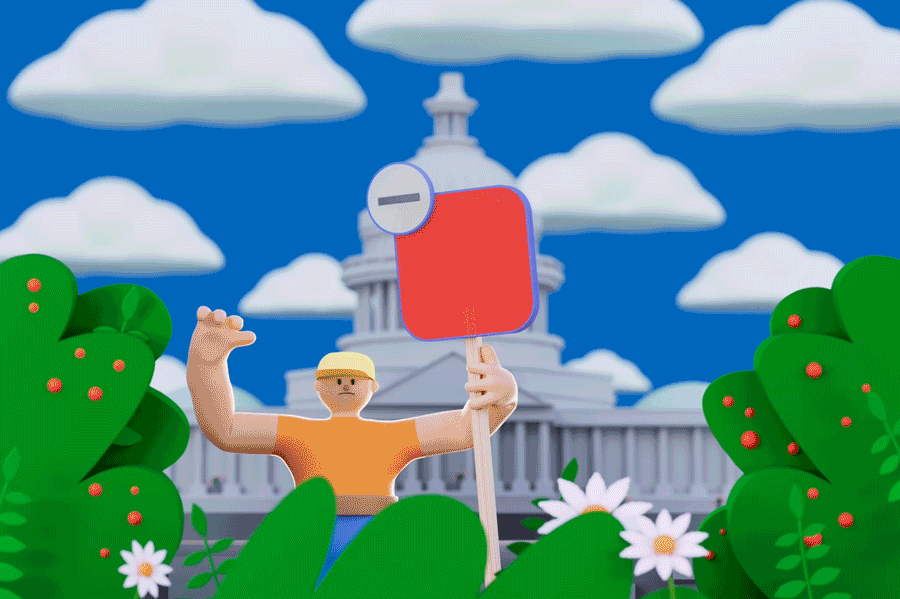
TikTok wants you to be its lobbyist over a possible ban. Is that fair?
- Science
- March 27, 2024
- No Comment
- 189
Uber and Airbnb have also repeatedly asked their users to oppose city government restrictions on the apps. And famously in 2012, websites including Wikipedia, Google and Reddit helped rally millions of their users to shoot down online piracy bills.
Persuasions like TikTok’s raise two questions: How much do you want technology companies to turn you into their lobbyists? And what’s in it for you?
You might want products to inform you about policies that affect your life. But tech companies could also annoy you by repeatedly asking customers to advocate for corporate political campaigns.
Uber and Airbnb popularized turning users into lobbyists
Many companies try to convince you to support their business, social or political agendas. But starting in the 2010s with Uber and Airbnb, technology companies hit on a potent form of political persuasion.
With your attention through the apps in your pocket, companies enlist your support by stressing the potential – and perhaps overstated – risks to the apps’ conveniences or people’s livelihoods.
In cities including New York, Austin and, recently, Minneapolis, Uber has regularly warned its users in the app or by email or text that a service they like could be crippled by proposed regulations.
Airbnb in multiple cities has enlisted its hosts to oppose restrictions on the home rental service.
Sometimes rallying users has helped stop regulation. Sometimes it hasn’t.
Uber warned users a few years ago that proposed New York regulations to reduce traffic and increase driver pay would cause fares to skyrocket.
The city’s rules went through, and there’s evidence that drivers are better off and passengers are no worse off. (Uber has said it disagrees.)
Uber, Lyft, DoorDash and other gig work companies also blitzed the apps’ users with scenarios of higher prices or suspended service unless people voted for a 2020 California ballot measure on contract workers. Voters approved it.
Companies have a right to persuade people and lawmakers over policies, said David Zipper, a transportation policy expert who recently wrote about Uber mobilizing users against regulation.
But Zipper is worried that tech companies with millions of customers have outsized power to skew your opinions and policy debates.
“They’re going to provide a one-sided portrait of what’s at stake,” Zipper said. “If we don’t recognize this sort of outreach for what it is, we’re prone to biases in policymaking.”
TikTok’s pitch to rally you against legislation
When Congress in 2012 considered bills trying to stop people from stealing movies online, thousands of websites including Wikipedia and Reddit went dark for a day.
They popped up messages urging users to contact Congress to protest the bills that opponents called government censorship.
Some lawmakers complained back then about being overwhelmed with phone calls. Some lawmakers also said the websites misled people with scare tactics.
Members of Congress had similar complaints recently about TikTok’s user lobbying campaign.
The 2012 effort is considered the most successful consumer mobilization in the history of internet policy.
Fight for the Future, a digital rights group, said at the time that 3 million people emailed Congress to oppose the proposed laws known as SOPA and PIPA. The bills died.
Udbhav Tiwari, director of global product policy for the web browser company Mozilla, said the decade-old campaign had two ingredients needed to effectively mobilize people over regulations. TikTok has one of those two ingredients. (TikTok didn’t respond to my questions.)
First, you have to feel like the outcome of the policy matters to your interests, not just those of a company.
TikTok’s messages urging you to oppose congressional legislation warn that you might lose access to an app you love. TikTok has also stressed that if the app is banned, some people might lose income they earn from TikTok videos.
Second, Tiwari said turning users into lobbyists is more effective if it involves multiple organizations. But the proposed TikTok legislation is focused on one app and TikTok is mostly alone in mobilizing users against it.
Tiwari said TikTok should be sparing in rallying app users to its policy campaigns. You might call Congress the first time a company asks, but it might feel unfair if you’re asked again.
“You can only play it once,” he said.
#TikTok #lobbyist #ban #fair









